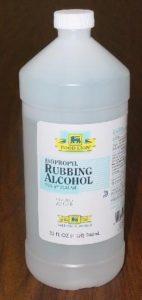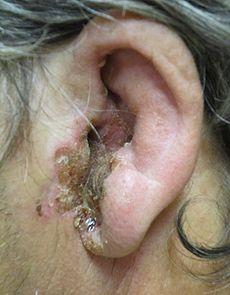- The Impact of Hearing Aids on Veterans’ Lives - February 15, 2024
- Hearing Health: A New Year’s Resolution for a Vibrant Life - January 16, 2024
- Unraveling Misconceptions About Hearing Loss - December 12, 2023
It seems every day we’re confronted with some new health hazard.
Some are bogus scare tactics designed to simply separate folks from their hard earned money with no actual threat present; but most are legitimate warnings — and the potential for swimmer’s ear is one of those instances.
What Is Swimmer’s Ear?
Swimmer’s ear (Otitis Externa) is an infectious condition of the outer ear brought on by prolonged exposure to bacteria in the outer ear canal from the ear opening to the ear drum. The sources of the bacteria are many: sand, grit, or other small debris, water, excessive sweat, and humidity.
Also, attempting to clean the ear canal with inappropriate instruments such as a sharp object or a fingernail can damage the delicate skin in the ear canal exposing it to bacteria. The prolonged use of in-the ear speakers (iPods, etc.) and even bacteria from dirty hearing aids can cause this type of ear infection.
The culprit we think of most in the onset of swimmer’s ear is, quite naturally, moisture from swimming in less than pristine water conditions. The Mayo Clinic tells us that it’s often brought on by water that remains in the ear after swimming creating a moist environment that aids bacterial growth. The same thing can happen with just lingering shower water. In fact, if you flush your own ears to remove cerumen (earwax), it is best to use distilled water since both city and well water contain bacteria that can cause this type of outer ear canal infection.
Dawn Tasche, RN at Aurora Medical Center in Sheboygan, WI, tells us that a further risk factor for swimmer’s ear is that it can be caused by jumping into untreated water from high points such as river banks or other natural environments such as the cliffs around rock quarries. A good assumption would be that the extra pressure from the fall forces the impure water deeper into the ear.
According to Dr. Daniel Fick, associate clinical professor of family practice at the University of Iowa College of Medicine and staff physician at the UI Hospitals and Clinics. “Swimmer’s ear is actually seen more frequently in people who aren’t swimmers. Anyone who is outside in the wind and rain is susceptible to this type of ear infection. A lot of farmers experience the problem after being exposed to the elements for a long period of time.”
How do you know if you’ve been infected?
You may suspect Swimmer’s Ear if your ear canals become itchy and inflamed. At this time you may want to use an over-the-counter or

If you are not able to control the infection with a home remedy, you need to see a physician. Swimmer’s Ear is usually treated with antibiotics, either in the form of pills or ear drops. If left untreated, the infection can become quite painful to the point where even touching the outer earlobe causes pain as does chewing, not to mention the decidedly unpleasant appearance of an ear with Otitis Externa.
Avoiding swimmer’s ear is one place where the old adage about an ounce of prevention being worth a pound of cure is definitely applicable. Wearing custom swimming earplugs offers the best protection for the swimmers’ ears. It is best to order custom earplugs from a licensed hearing care provider, as the professionals at Welsch Hearing Aid Company. The ears are examined before impressions are made and proper fit is ensured. Custom earplugs are also available for noise protection from shooting guns, loud music, industrial noise and more.
Please Note: Information in this article is not intended to diagnose, treat, cure or prevent any disease. This article is for informational purposes only and should not be used to replace the care and information received from your healthcare provider. Please consult a healthcare professional with any health concerns you may have.

